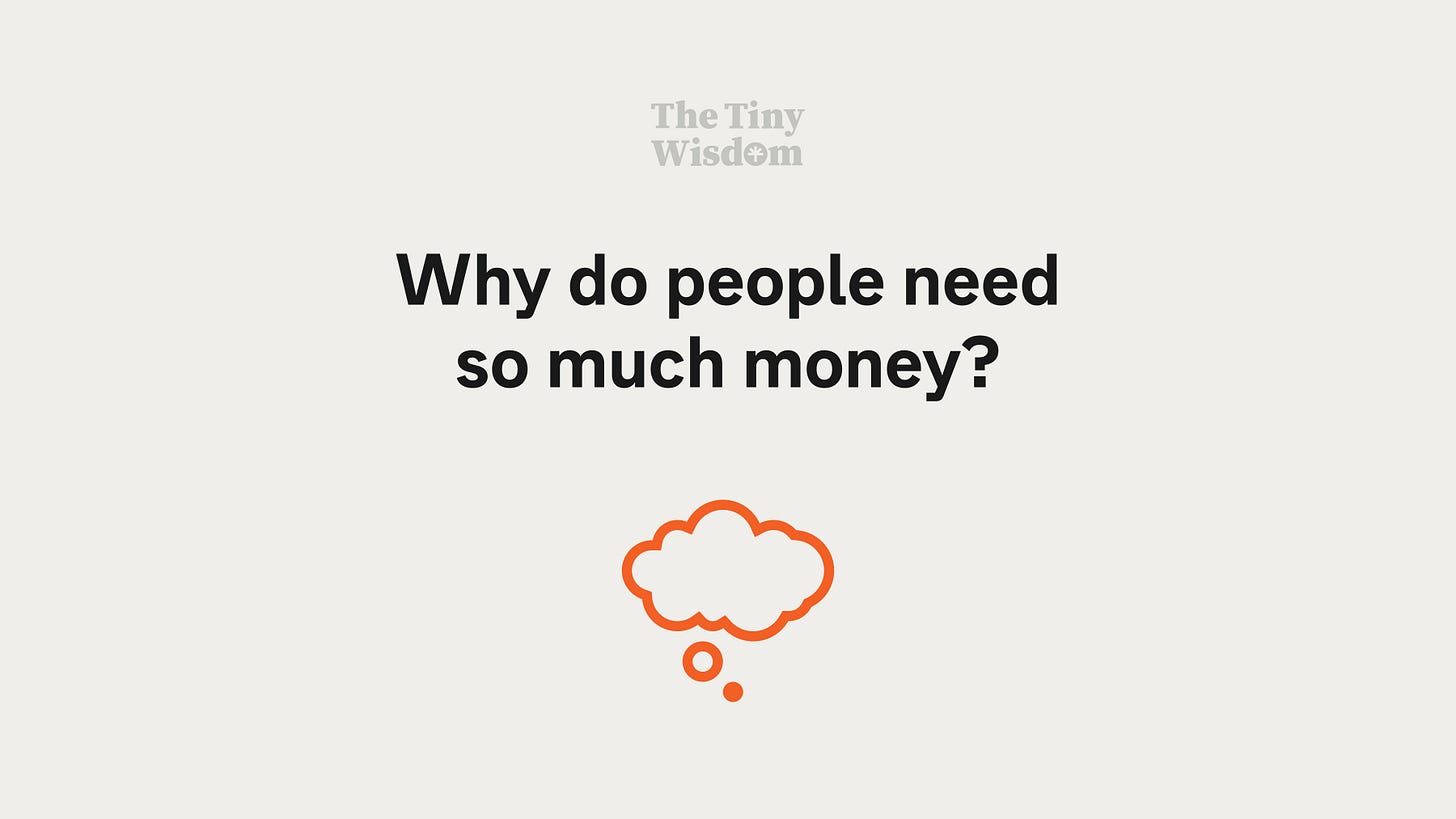Why do people need so much money?
Lately, I find it difficult to sleep, not due to a health problem, but because my conscience can no longer bear it.
How world leaders, superstars, and influencers remain silent about genocide. How the Indonesian government seems to think it's acceptable to destroy Raja Ampat—one of the last paradises on earth. How so many people would do anything for the sake of getting rich.
World leaders and influencers often stay silent about genocide and environmental destruction because speaking up could cost them money, power, or valuable alliances.
Taking a stand might jeopardise trade deals, investments, or political relationships, so they choose silence to protect their interests, even if it means ignoring injustice or the loss of irreplaceable natural treasures.
I wonder: How much money do they need? What would they do with all that money?
The real cost of "enough"
If you ask a hundred people how much money is enough, you’ll get a hundred different answers:
Some want enough to pay the bills and sleep well at night. Others want millions, thinking it will buy them freedom, respect, or happiness. But the truth is, “enough” is a moving target. The more you get, the more you want. Psychologists call this the “hedonic treadmill”—we adapt to new levels of wealth, and satisfaction slips just out of reach.
Wealth, like sugar, is sweet in moderation but toxic in excess. It promises happiness, but rarely delivers lasting satisfaction. Once you have some, you start thinking that a little more will finally be enough. But the finish line keeps moving. It’s addictive, and withdrawal can be terrifying.
Why do people chase money?
People chase money for many reasons: to feel safe, to feel important, to prove their worth, to escape a job they hate, or to help their families. Some want to buy beautiful things, others want to buy influence. Some even want to help others, believing that more wealth will let them do more good.
But for many, the chase is about filling a deeper emptiness: insecurity, envy, or unmet emotional needs. When you feel small, money looks like a way to become bigger. When you feel powerless, wealth looks like power. When you feel uncertain, money looks like certainty. But these are illusions. Money can’t fix a broken sense of self.
When you feel small, money looks like a way to become bigger. When you feel powerless, wealth looks like power. When you feel uncertain, money looks like certainty.
What happens when you get rich?
Let’s say you do get rich. What then? Most millionaires don’t swim in gold coins like Scrooge McDuck. They keep their money in investments, real estate, or even cash, always worried about losing it, always looking for the next opportunity. Many live frugally, spending less than you’d expect. The anxiety doesn’t go away; it just changes shape.
And yet, we see leaders and corporations willing to sacrifice almost anything—forests, coral reefs, even human lives—for more.
In Indonesia, nickel mining has already destroyed hundreds of hectares of forest in Raja Ampat, threatening one of the most biodiverse places on earth. Why? For profit, for GDP, for the illusion of “progress.” And when outrage fades, the mining may quietly resume.
Meanwhile, as genocide unfolds before our eyes, many world leaders say nothing. Is it because speaking up might cost them political capital, trade deals, or donations? Is silence just another currency in the marketplace of power?
So, how much money do you need?
Enough to feel safe? Enough to feel seen? Enough to silence the voice that says you’re not enough?
Or is the real question: What are you willing to trade for it?
Will you trade your voice, your values, your planet, your soul?
I once wrote, ”To do extraordinary things, we have to do something that might seem ordinary a lot of times.” And it became even more relevant with the current issues we are facing right now.
Change doesn’t start with grand gestures. It begins with small, stubborn acts of conscience. Speaking up when it’s easier to stay silent. Protecting what’s precious, even when it’s inconvenient and choosing “enough” over “more”.
We may not have the power of presidents or billionaires. But we have the power to choose what we value, every day. To zoom in on the next right thing, rather than being paralysed by the size of the world’s problems. To remember that the pain of doing what’s right is less bitter than the pain of regret.
Maybe the question isn’t how much money do they need. Perhaps it’s how much courage we need to say, “enough,” and mean it.
Free Palestine.
I hope you find this insightful. Remember:
It's not going to be easy,
But it's not impossible.
Your friend,
Brian.



